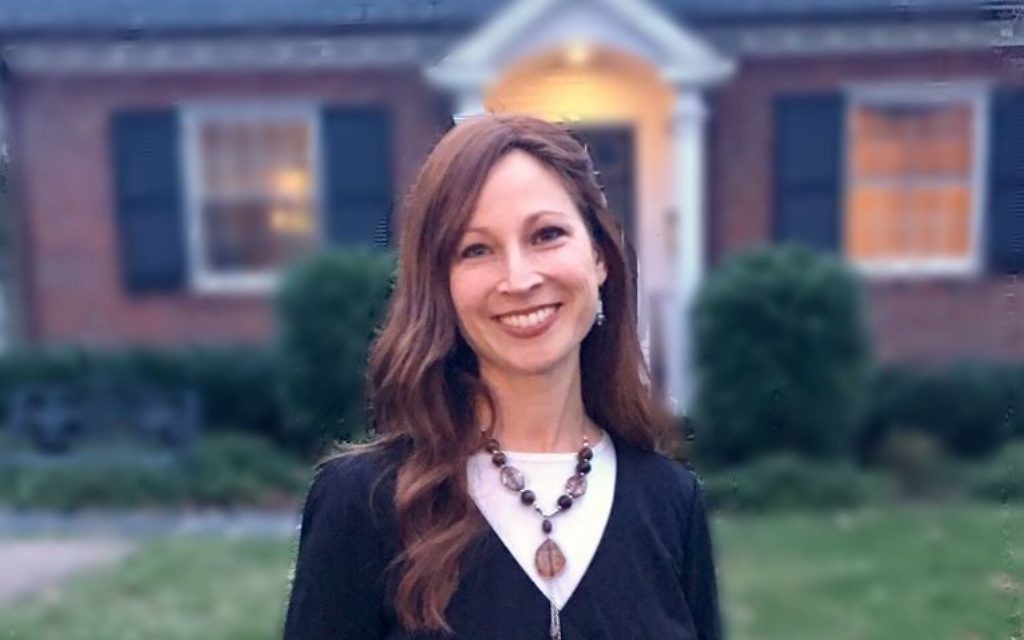Hand of Hashem: Journey Going Forward
I’m a writer, which is something I didn’t necessarily choose or even appreciate early on. It grew in part out a sense of dissatisfaction and searching.
Now I feel the emptiness that comes from not writing and the explosion of fulfillment after getting my thoughts out, the words and sentences and paragraphs coming together to create a sentiment or idea that didn’t exist before.
This process serves not only to clarify my own discoveries, but also, I hope, somehow to enhance the lives of others and bring a bit of light into the world.
Get The AJT Newsletter by email and never miss our top stories Free Sign Up
As a child, I would sit on my bedroom floor and fill notebooks and random pieces of paper I found around the house. There’s a story about me, age 3 or 4, finding a pen but not being able to locate paper, so I expressed my unrefined creativity on a yellow leather 1970s chair. That chair, ink stains and all, remained there until it was reupholstered many years later.
As an adult, I write for my parnassah, the Hebrew term for livelihood. During my years as a stay-at-home mom and for several years prior, I have written for various magazines, websites and newspapers. Sometimes I tell my own story; other times I help tell the stories of others.
Sometimes people are thrilled to share their thoughts about what I’m writing about. Other times they’re not, or they’re simply just busy.
In emailing an editor recently to tell her I was feeling frustrated, she reminded me of journalism’s challenges and why people do it. Later that week I received my own reminder.
During one interview, I felt moved to tears. This mom had all but given up her Judaism, only to meet a Chabad rabbi and rebbetzin who were beaming with joy and love, welcoming this skeptical woman with open arms and open hearts into a world of Judaism many never experience.
Years after the woman’s initial connection with this couple, she credits them with saving her life and those of her children, who went on to receive Jewish educations and to live proudly as Jews. Hers was part of a larger story about some special people doing important work. My role was to capture her words and feelings and those of the other interviewees and lace them into a larger story.
Invariably, the articles I write are about people working for the greater good of the community and humanity — and, often more specifically, people living life devoted to faith in G-d and Torah.
As I write this, my challah dough is rising, and my preschooler is next to me, falling asleep across two dining room chairs. Soon I will braid the loaves, which will be served during our Shabbat meals to our family and guests.
It has been about 10 years since I made my first challahs. Though I sometimes hesitate to take on this mitzvah each week, afterward I feel such contentment and wholeness.
In thinking more about it, I realize that this mitzvah uses all my senses. I mix the ingredients, let the dough rise, say the blessings before separating a symbolic piece of dough, braid the loaves and bake them, the aroma filling the house.
The blessing said on the separated piece of dough, which I read from a laminated card on my fridge, talks about, among other things, becoming imbued with holiness, the spiritual influence of challah enabling our children to be constantly sustained by the hands of G-d — and asking for His compassion to keep me from sorrow and pain.
Sometimes when I read it, I hardly pay attention as my house swirls with the noise from my children and my head is filled with chatter. Other times, I catch myself being moved by these powerful words. How awesome these blessings could be if I would fully connect with them.
This week’s Torah portion is Lech Lecha, which means to go forward. It is the same root as the word halacha, which I had always assumed met a rigid set of rules. However, it’s the opposite. The wisdom and words of the Torah are meant to go forward with us, through time, through our individual and collective lives. As a friend said to me recently, “Torah is like good wine; it gets better with age.”
Life is a journey, an ongoing process of discovering, connecting, drifting and reconnecting with G-d. It’s also about growing and going forward as a writer tasked with sharing a message that I don’t always internalize myself. This continues to be both a blessing and burden. But maybe that’s the point.





comments